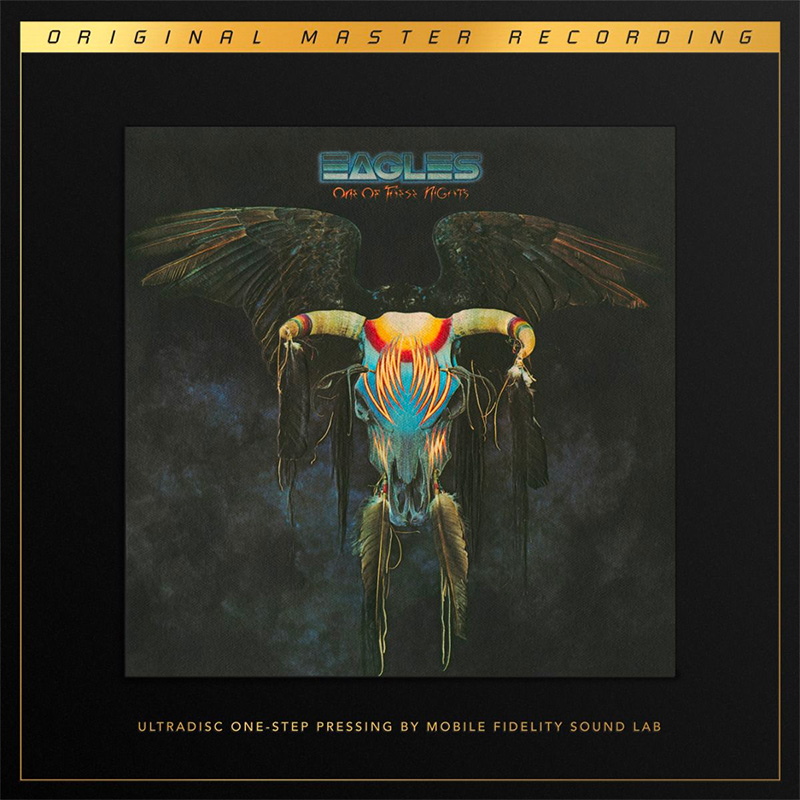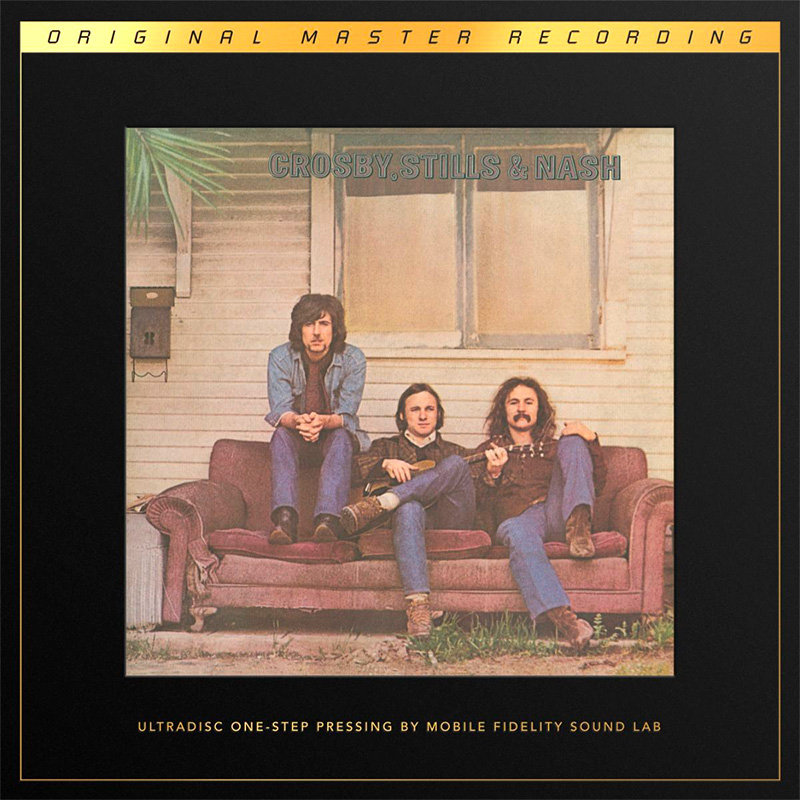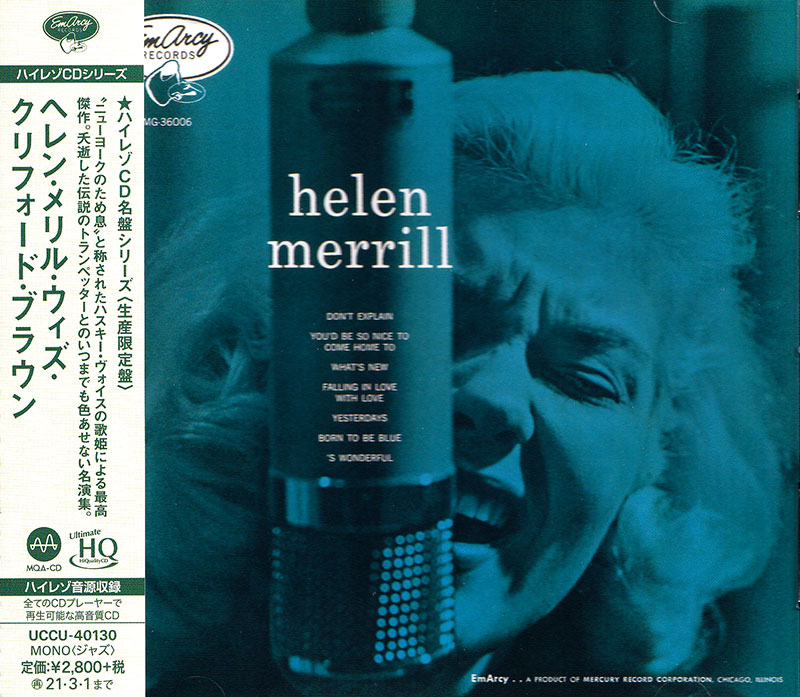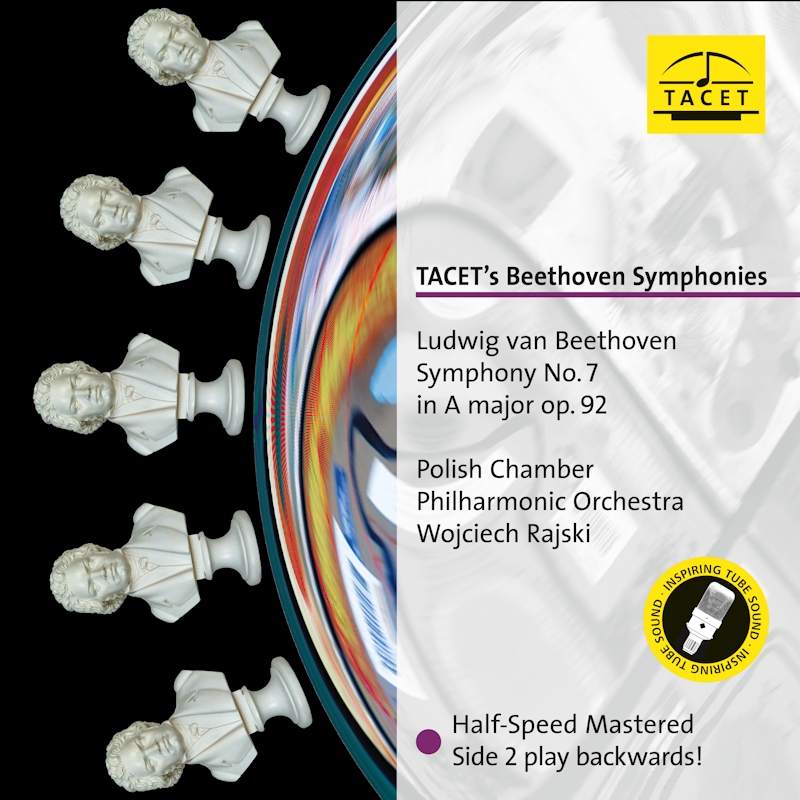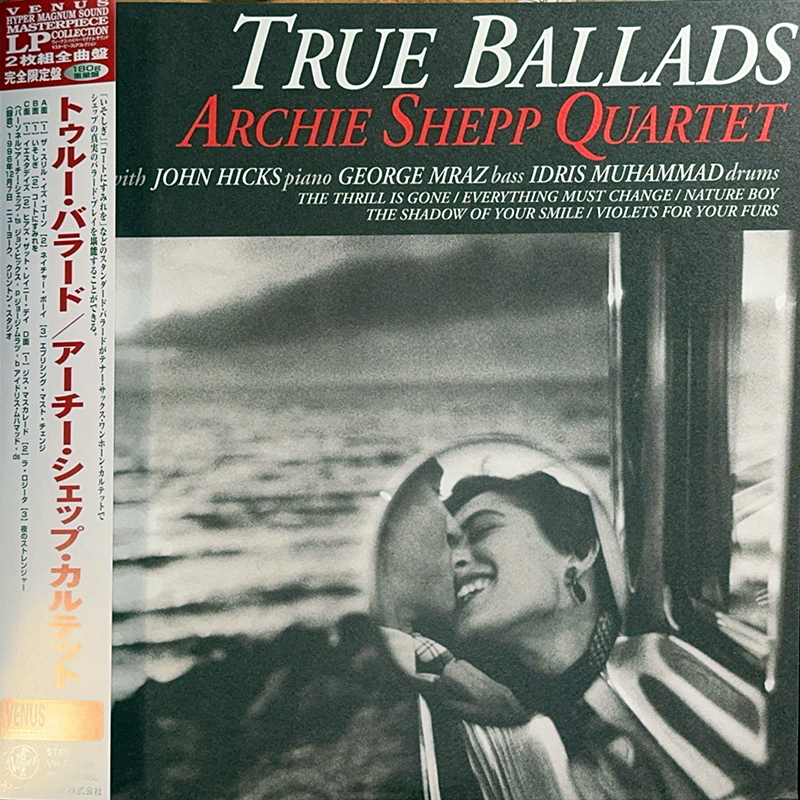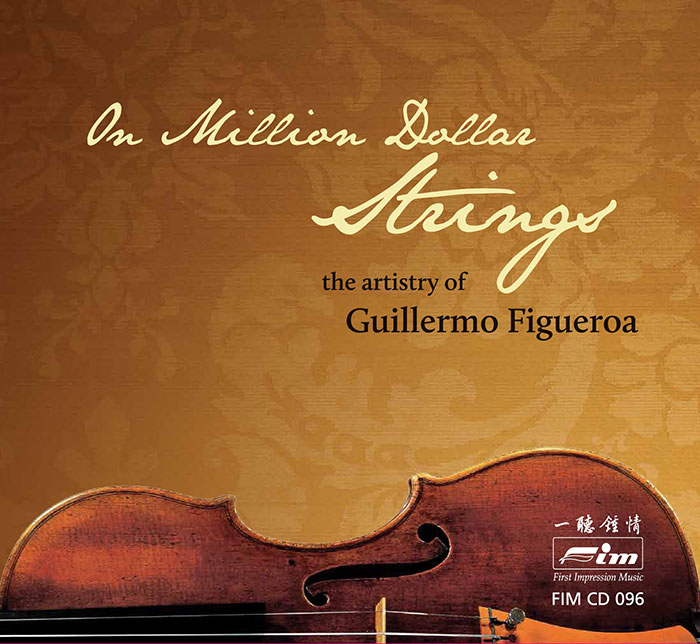Logowanie
OSTATNIE EGZEMPLARZE
Jakość LABORATORYJNA!
ORFF, Gundula Janowitz, Gerhard Stolze, Dietrich-Fischer Dieskau, Deutsche Oper Berlin, Eugen Jochum
Carmina Burana
ESOTERIC - NUMER JEDEN W ŚWIECIE AUDIOFILII I MELOMANÓW - SACD HYBR
Winylowy niezbędnik
ClearAudio
Essence MC
kumulacja zoptymalizowana: najlepsze z najważniejszych i najważniejsze z najlepszych cech przetworników Clearaudio
Direct-To-Disc
PIAZZOLLA, ChamberJam Europe
Tangos del Ángel y del Diablo
Direct-to-Disc ( D2D ) - Numbered Limited Edition
BELLINI, SPONTINI, VERDI, Rosa Ponselle
Rosa Ponselle
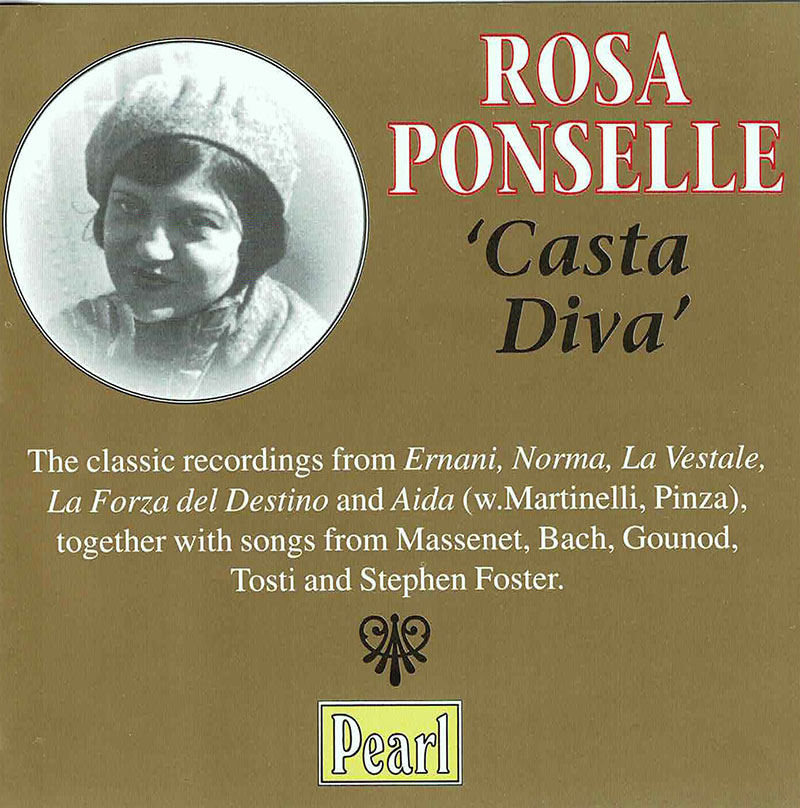
- 1. Norma: Keusche Göttin
- Komponist Bellini
- mit Rosa Ponselle
- 2. Norma: Sieh, o Norma, hab Erbarmen
- Komponist Bellini
- mit Rosa Ponselle
- 3. Die Vestalin: Dich rufe ich an...Göttin des Herzens
- Komponist Spontini
- mit Rosa Ponselle
- 4. Ernani: Schon später Abend...Ernani, rette mich
- Komponist Verdi
- mit Rosa Ponselle
- 5. Die Macht des Schicksals: Frieden, Frieden
- Komponist Verdi
- mit Rosa Ponselle
- 6. Aida: Als Sieger kehre heim
- Komponist Verdi
- mit Rosa Ponselle
- 7. Elegie op. 10
- Komponist Jules Massenet
- mit Rosa Ponselle
- 8. Ave Maria
- Komponist Charles Gounod
- mit Rosa Ponselle
- 9. My Old Kentucky Home
- Komponist Stephen Foster
- mit Rosa Ponselle
- 10. Carry Me Back To Old Virginny
- mit Rosa Ponselle
- 11. 'A vucchella
- Komponist Francesco Paolo Tosti
- mit Rosa Ponselle
- 12. Luna d'estate
- Komponist Francesco Paolo Tosti
- mit Rosa Ponselle
- 13. Die Macht des Schicksals: Frieden, Frieden
- Komponist Verdi
- mit Rosa Ponselle
- 14. Ernani: Ernani, rette mich
- Komponist Verdi
- mit Rosa Ponselle
- Rosa Ponselle - soprano
- BELLINI
- SPONTINI
- VERDI
Jedna z najsłynniejszych śpiewaczek operowych minionego stulecia. Obdarzona wspaniałym głosem, niezwykle utalentowana, stała sie gwiazdą Metropolitan Opera w Nowym Jorku, śpiewając u boku największych artystów XX wieku. W czasie jej debiutu jej partnerem był Enrico Caruso. Rosa Ponselle, niezwykle stremowana wyszeptała: "Nie, nie mogę, nie dam rady!" i już chciała zejść ze sceny, Caruso oczarowany jej śpiewem powiedział: "Nie, pomogę ci". Publiczność była rozentuzjazmowana. By common consent, the emergence of Rosa Ponselle marked a watershed in United States' operatic history. There had been great American singers before her, but they had made reputations in Europe before entering the old Metropolitan Opera House in New York. Ponselle's was the first all-American success story at the Met. She began at the top, singing opposite Enrico Caruso and joining that selected band who sang only leading roles in their careers. She was born Rosa Maria Ponzlllo, the daughter of immigrants from Naples, at Meriden, Connecticut, on 22 January 1897. Her father was a baker. It was a household in which singing was appreciated: Rosa heard Calve, Tetrazzini and Melba (whose name she wanted to add to her own) and admired SchumannHeink. Even as a child she had a big voice and (according to her own testimony) a range of three octaves - she had been gifted with the archetypal singer's face, roundish in shape with natural built-in resonators. Her elder sister Carmela, a mezzo, had some success singing in cinemas and Rosa followed her. At the Cafe Mellone in New Haven she sang accompanying herself on the piano, slipping the odd operatic aria in among the ballads and Neapolitan songs. Then the Ponzillo sisters struck up a vaudeville act and toured on the Keith circuit, acquiring a considerable reputation. Their voice coach William Thorner's studio was fashionable among the singers of the day and the girls were heard by the baritone Victor Maurel, who told Caruso of Rosa's potential. When Caruso himself dropped in, he asked to sing a duet with Rosa and was sufficiently impressed to recommend her to Giulio GattiCasazza, who he knew was desperate to find a soprano for the belated Met premiere of Verdi's La Forza del Destino. Genuine spinto sopranos were in short supply, with Emmy Destinn trapped in Europe by the war and Johanna Gadski out of favour because she was German. Rosa fainted at her joint audition with Carmela but after two more hearings was given a contract, Gatti telling her: `If you make good, I will open the door to American talent as long as I am here.' Gatti gave her the name Ponselle and placed her under the charge of Maestro Romano Romani, her teacher from then on - he guaranteed to have her ready for the premiere on 15 November 1918. Despite a last-minute attack of nerves (not helped by discovering that Caruso was as terri fied as she was), she had quite a triumph - the cast also included Giuseppe de Luca and Jose Mardones. The critics were kind, Gatti kept faith in her and over the next few years she was allowed to build steadily on her initial success - although Caruso's illness and his death in 1921 meant that they sang together in only one more opera, Halevy's La Juive in 1919. Gatti-Casazza had long dreamed of reviving Bellini's Norma and he had Ponselle in mind for the title role. By 1925 he felt able to give her the leading parts in Ponchielli's La Gioconda and Spontini's La vestale- the latter a testing ground for Norma. At last in 1927 came Norma itself, the high point of her career and an unadulterated triumph. In the 1920s the Met could parade exceptional casts and Ponselle was heard with Lauri-Volpi, Martinelli, Gigli, Matzenauer, Ruffo and Pinza, yet she was acknow- ledged as the brightest star of all. During the summers of 1929 to 1931 she was a guest artist at Covent Garden and it was there in 1930 that she first sang Violetta in La Traviata (an off-theair performance from the Met in 1935 is on Pearl GEMM CDS 9317). Her only other foreign engagement, apart from two recitals in Havana, was at the first Maggio Musicale in Florence in 1933, where the Italians appreciated her artistry in La vestale. The end of her career was controversial. Her last Met assumption was Carmen in 1935 and it was not liked. The nerves which had always dogged her were becoming unbearable and after Gatti's retirement that year, her worth was not fully appreciated. When the management refused to mount a production of Cilea's Adriana Lecouvreur, on which she had set her heart, she retired abruptly in 1937. Recordings she made at home in 1954, accompanying herself at the piano, suggest that she could have continued singing into the post-war era. After a failed marriage, Ponselle returned to operatic circles as director of the Baltimore Civic Opera, and she lived to see herself recognised as one of the century's great divas. She died on 25 May 1981. When not beset by pre-performance nerves, Ponselle was a considerable character who loved outdoor facilities like bicycle riding - she drove other singers, fearful of catching cold, to distraction by opening windows backstage. She would have no truck with rivals like Maria Jeritza who played the prima donna; and legend has it that when the two had to share a dressing room, she threw all La Jeritza's things out into the corridor. Her singing reflected this robust approach. Gifted with a superb voice, from a mezzo-like lower register to a ringing B nat ural and a (mostly) secure C, she worked hard to achieve an even scale and a rounded tone, and at her peak she ranged fearlessly through the difficulties of her chosen roles. One which she seemed born to sing, Aida, she avoided cracking the high C in `O patria mia'; but this was a rare case of nervousness getting the better of her. Her one fault was that she occasionally allowed her tone to become a little plummy, and her vowels a trifle discoloured, rather than sacrifice fullness of sonority - and even then her Italo-American background saved her from losing touch with the Italian in which she mostly sang (with forays into French and English). Ponselle's first discs were made for Columbia in 1918-24 (Pearl GEMM CDS 9964). Had the Victor Company been quicker off the mark, we might have had a duet or two with her and Caruso. As it was, she eventually waxed several scenes for Victor with Martinelli, whose trumpet-like tone made for an interesting contrast rather than the blend Caruso would have provided. She began recording with Victor in 1923 and some famous titles were made acoustically, including two of Ponselle's warhorses, the aria and cabaletta from Ernani and `Pace, pace mio Dio' from La Forza del Destino. The latter scene was so closely identified with her that she called her house near Baltimore the Villa Pace! Our selection from her electric recordings includes two remakes of each of these arias, thrillingly sung: Ponselle's amalgam of abandon and control in `Ernani involamf is one of the wonders of the world, whichever version you play. The programme also features her first double-sided electric coupling, Stephen Foster's My Old Kentucky Home and the even more nostalgic Carry Me Back To Old Virginny (a song which won a gold record for rival soprano Alma Gluck). It is right and proper that we begin our CD with the two scenes from Norma - though they were actually the last records from her golden decade. No one has approached Ponselle's awesome combination of control, authority, breadth of phrasing and intensity in the aria and cabaletta. The duet with Telva is also a benchmark of interpretation, the two artists' divisions beautifully entwining. The extracts from La Vestale are precious reminders of how Ponselle could breathe life into the older style; and the aria from Aida shows how impressive she was in this role, in spite of giving only a handful of stage performances. The final scene from La Forza del Destino is a classical ensemble disc, matching Ponselle with two of her regular partners (Pima sings the baritone's dying cries before coming on in his usual role of the Padre Guardiano). The Massenet and Bach-Gounod items are examples of Ponselle's more serious (but never sentimental) recital style; and the Tosti songs were both indelibly associated with Caruso until Ponselle interpreted them with an equally inimitable flair. TULLY POTTER
